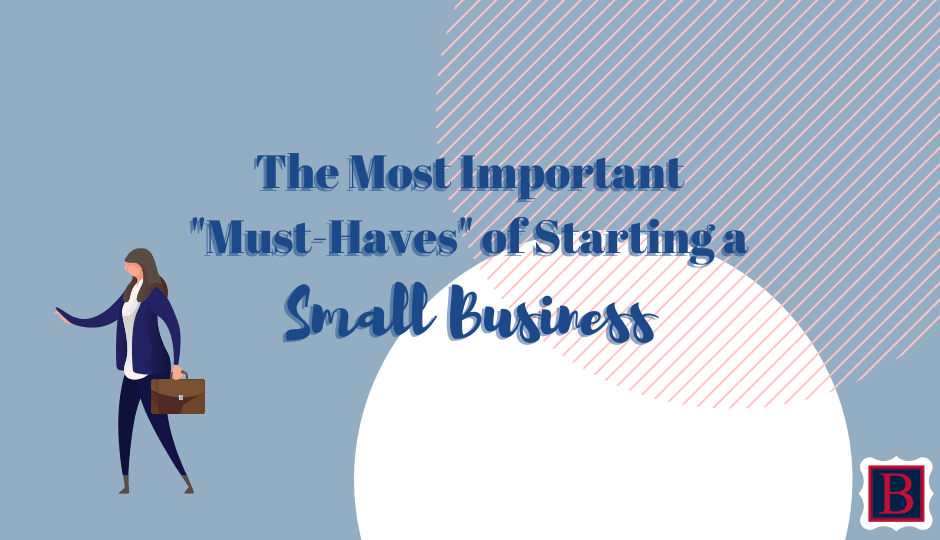If you own a small business or if you are thinking about starting a small business, this blog post is for you! Bryson Law Firm, LLC wants to ensure that you are aware of what owning a small business means when it comes to taxes.
Let’s start with pre-opening items. Here are six things you should do before opening your small business:
- Choose a Business Structure: The type you choose determines which income tax return you will need to file as a Taxpayer. Note that there are also many non-tax implications such as personal exposure to liability, profit sharing among owners, and more. For a holistic look at selecting your business structure, consider consulting with a business law professional. The most common business structures are:
- Sole Proprietorship: An independent business owned by an individual. There is no distinction between the taxpayer and their business from a tax perspective.
- Partnership: An independent business with ownership shared between two or more people.
- Corporation: A separate business owned by shareholders.
- S Corporation: A corporation that chooses to pass corporate income, losses, deductions, and credits through to the shareholders.
- Limited Liability Company: A business structure allowed by state statute.
- Choose a Tax Year: A tax year is an annual accounting period for keeping records and reporting income and expenses. A business owner can choose between a calendar year (January 1 -December 31) or a fiscal year which is 12 consecutive months ending on the last day of any month except for December.
- Apply for an employer identification number: An EIN is used to identify a business and is needed for most businesses. It is important for businesses with an EIN to keep the mailing address, location, and responsible party up to date. IRS regulations require businesses to report changes in the responsible party within 60 days, which you can do by completing Form 8822-B, Change of Address or Responsible Party. An EIN number is applied for through the IRS directly.
- Have all Employees Complete these Forms: Form I-9, Employment Eligibility Verification U.S. Citizenship and Immigration Services, and Form W-4, Employee’s Withholding Allowance Certificate.
- Pay Business Taxes: The form of business determines what taxes need to be paid and how to pay them. For example, a Partnership will file an IRS Form 1065 annual income tax return, a C Corporation will file an IRS Form 1120 annual income tax return, an S Corporation will file an IRS Form 1120S annual income tax return, and single-member owned LLCs will file via a form Schedule C on the owner’s IRS Form 1040 individual income tax return. Business owners should keep in mind that business income taxes are NOT the same as business payroll taxes, sales taxes, etc. One of the best things a new business owner can do when starting up a new business is to bring a Tax Professional on board to ensure all tax obligations are kept up to date.
- Visit state’s websites: Before opening your business, you should visit your state’s website for information about state requirements. For instance, Louisiana also requires state Corporate Income and Franchise Tax Returns be filed and paid by applicable businesses. They also collect state withholding tax and state sales tax and tax returns.
The six tasks mentioned above are things that one must complete while owning a small business. Additionally, the IRS and State taxing authorities offer numerous tax opportunities to business owners in the form of deductions and credits. Depending on your business, you may qualify for a home office deduction.
The home office deduction is available to qualifying self-employed Taxpayers such as independent contractors and those working in the gig economy. Keep in mind that the Tax Cuts and Jobs Act suspended the business use of home deduction from 2018 through 2025 for employees who receive a paycheck or a W-2 exclusively from an employer. Therefore, employees are not eligible for the deduction, even if they are currently working from home.
There are two requirements to qualify for a home office deduction:
- A taxpayer must use part of their home for one of the following:
- Exclusively and regularly as a principal place of business for a trade or business
- Exclusively and regularly as a place where patients, clients or customers are met in the normal course of a trade or business
- As a separate structure that's not attached to a home that is used exclusively and regularly in connection with a trade or business
- On a regular basis for storage of inventory or product samples used in a trade or business of selling products at retail or wholesale
- For rental use
- As a daycare facility
- The term “home” for this deduction includes:
- A house, apartment, condominium, mobile home, boat, or similar property
- Structures on the property, like an unattached garage, studio, barn, or greenhouse
- Does not include any part of the taxpayer’s property used exclusively as a hotel, motel inn or similar business
Deductible expenses for business use of home normally include the business portion of real estate taxes, mortgage interest, rent, casualty losses, utilities, insurance, depreciation, maintenance, and repairs. In general, a taxpayer may not deduct expenses for the parts of their home not used for business.
To claim your deduction, you can use the regular or simplified method:
- Regular: qualifying taxpayers compute the business use of home deduction by dividing expenses of operating the home between personal and business use
- Simplified: qualifying taxpayers used a prescribed rate of $5 per square foot of the portion of the home used for business to figure the business use of the home deduction.
We hope that this blog helps you when you decide to open your small business. As always, if you have any questions do not hesitate to contact our office!























